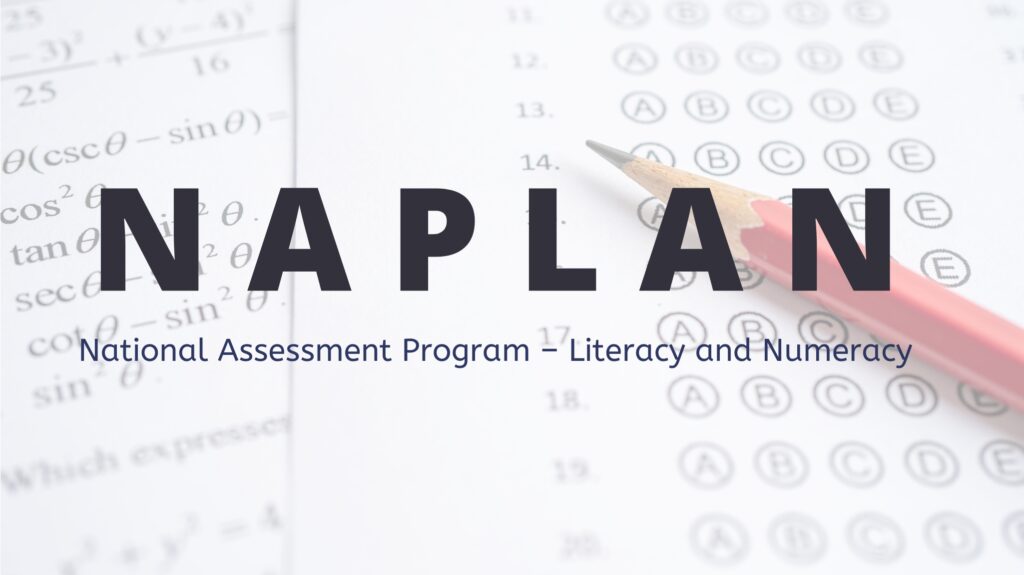Everything You Need to Know About NAPLAN and How to Prepare Your Child
This post was last updated on March 12th, 2025

The National Assessment Program – Literacy and Numeracy (NAPLAN) is an annual assessment program that tests the numeracy and literacy skills of students in Years 3, 5, 7 and 9 across Australia. It is used to measure how well students are performing compared to their peers in other schools around the country. The results of this test can be used by schools to identify areas of improvement in literacy and numeracy teaching and help them better tailor their curriculum to meet the needs of their students.
For parents, it’s important to understand what NAPLAN involves so you can best prepare your child for this important assessment.
Here’s everything you need to know about NAPLAN and how to get your child ready for the test!
What is Involved in the NAPLAN Test?
NAPLAN consists of four main components: reading, writing, language conventions (spelling, grammar and punctuation) and numeracy – with each component taking up 40 minutes to about an hour of the total three-hour test. Students will be asked a variety of multiple-choice questions as well as some short answer questions or tasks that require them to show their understanding.
The NAPLAN test gives teachers, principals and parents a comprehensive picture of how each student is performing in comparison to their peers. It also provides information on how well schools are meeting the needs of their students.
This data can be used by school leaders to identify areas of strength and weakness within the school’s curriculum so that they can make necessary changes to improve student performance.
When is the Test Held?
The dates for NAPLAN vary from year to year but typically take place at the beginning or middle of May. Prior notification will be given out by your child’s school regarding when exactly they are required to sit the test. All students need to be well prepared and attend on the specified dates.
Once the tests have been completed, schools normally receive results back within 6 to 8 weeks. This information will then be shared with parents so that they can track their child’s progress over time. Schools may also use this data to assess the success of various school-wide initiatives.
How Can Parents Help Their Child Prepare?
It’s natural for parents to want their children to do well on any test they take but it’s especially important when it comes to something like NAPLAN which affects your child’s future educational outcomes.
Here are a few tips on how parents can help their children prepare:
- Get organised: Make sure your child knows when they need to sit for the exam and plan so that there is plenty of time to study beforehand. Organise a study timetable with them that allows enough time each day or week leading up to the exam date for revision without feeling overwhelmed or pressured.
- Develop good study habits: Encourage your child not only to practise past papers but also to read widely outside of school books, keep up-to-date with current affairs or watch educational programs on TV. This will improve their knowledge base outside what they learn in school as well as help develop concentration levels needed during exams.
- Practice for the NAPLAN test online: There are plenty of online resources available such as websites featuring sample tests or free ebooks that offer step-by-step guides through each section of the exam. These can provide helpful practice material that allows students to familiarise themselves with what types of questions they might expect during NAPLAN.
- Talk openly about their concerns: Letting your child know that it is okay if they feel anxious about taking an important test like this can help reduce stress levels associated with exams. Encourage them to talk openly about any worries they might have before or after sitting it so you can provide any extra support needed.
- Be positive: Although it’s easy to get stressed out worrying over whether your child will do well on NAPLAN, try to focus instead on giving positive reinforcement rather than putting too much pressure on them. Remind them why they are taking this exam – because one day it could open many doors and opportunities later in life – instead of focusing solely on getting good marks.
In Summary
Making sure your children know there is no reason to panic regardless of how they perform during this exam is an essential part of preparing them mentally to take it without feeling intimidated by its importance. With just a little bit of practice beforehand combined with healthy study habits, your children should feel confident going into the NAPLAN test.
Recommended For You
What is a Resume Declaration?
Most Inside
Most Inside offers high-quality recommendations and valuable updates to enhance all aspects of your life, providing premium guidance and enriching experiences.




